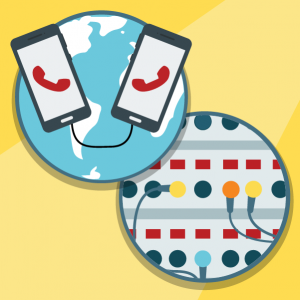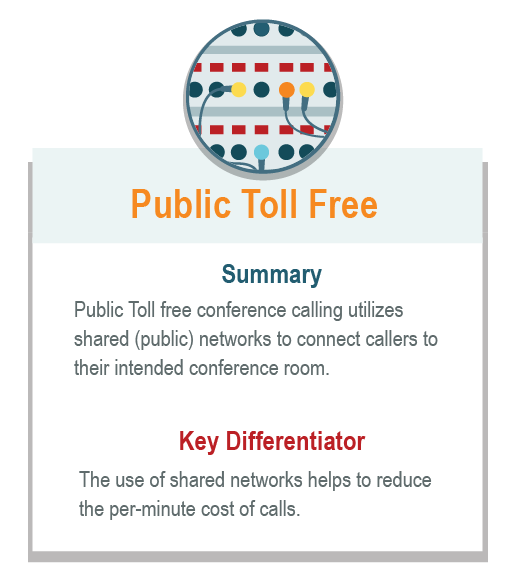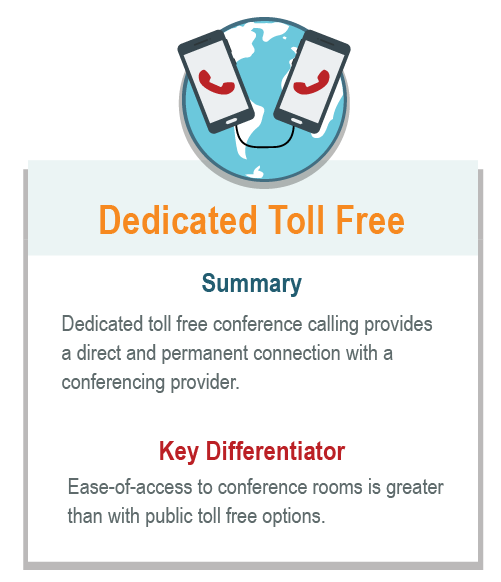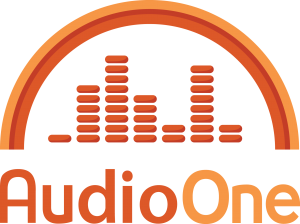Many factors impact the success of a conference call. Participant etiquette, management tools, pace of the presentation, and so on.
What’s often overlooked is how important the connection is. The first thing any business needs to get sorted is whether to use Public Toll Free or Dedicated Toll Free conference calling services.
But they’re both toll-free? Is there any real difference? Absolutely. Deciding between public toll free and dedicated toll free conference calling is critical for each and every business’s use case.
Fortunately, we’re here to help you understand the differences between public toll free and dedicated toll free conference calling. Get the details below!
Toll Free vs. Toll Free
How do public toll free and dedicated toll free conference calling services truly differ? There are several important factors. To highlight them, it seems best to discuss each option in some detail. Let’s start with public toll free.
Public Toll Free Conference Calling
The name says it all. Public toll free conference calling hinges upon one major factor: all calls are made across shared, public networks.
There are three important factors you need to know about public toll free:
#1. Connections are temporary.
#2. Hosts and participants must dial-in by a main conference number (an 800, 888, 866, etc., number), and often they required to use a PIN to enter.
#3. The use of shared networks reduces the pay-per-use (PPU) cost for calls. (These costs are figured by the minute: “cost-per-minute.”)
Quickly, I just want to touch on the first point in a bit more detail. Shared networks only allow for temporary connections. The lines used to facilitate calls are open to any organization making conference calls. So there are thousands of “conference rooms” open. Consequently, dialing-in is a must, so a caller is “switched” (moved) into the right virtual room.
Why mention this? Well, one of the biggest complaints I’ve heard regarding conference calls is the requirement to dial-in with a PIN. Easily lost or forgotten, PINs can prove annoying for callers. Keep this tidbit in mind as we explore dedicated toll free conference calling.
Dedicated Toll Free Conference Calling
Dedicated toll free is all about the connection. Dedicated options provide businesses essentially a one-to-one connection with their provider’s conferencing bridge. No having to go through shared networks.
Getting off public lines has its benefits:
#1. The connection is permanent
A permanent connection enables companies to start up a conference call at any time. Dedicated lines provide significantly greater ease-of-access.
#2. No dialing-in
Given you don’t have to worry about being switched to a conference room, dedicated lines provide the luxury of not having to dial-in.
#3. Adaptable security
Dedicated lines provide a bit more flexibility when it comes to security. PINs and conference codes can be added to any conference room, though they are not required with the one-to-one connection of a dedicated line.
Considering Your Use Case
Deciding between public toll free and dedicated toll free conference calling really comes down to your organizations use case. The following section should help you determine which option truly fits your needs.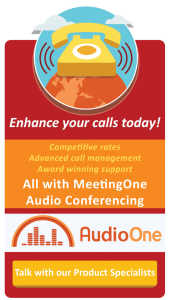
The Public Toll Free Use Case
Shared networks make conference calls quite affordable for the average business. And that’s the most important factor for many businesses: affordable conference calling.
Going with public toll free is going to be preferable for the following types of organizations:
- Small businesses who have only a small number of employees or those with few satellite offices.
- Organizations that do not make thousands of minutes worth of calls per month.
- Organizations that are unworried about sharing confidential information over calls. (Psst, conference calls can be hacked. Get more info here.)
The Dedicated Toll Free Use Case
Those use cases that are going to require dedicated toll free conference calling do differ from their public toll free counterparts. There’s one readily way to determine if you need dedicated toll free: If your organization makes thousands of conference calls every year.
High Call Quantity Organizations
Any large organization making tens of thousands of minutes of calls each month would likely be benefitted by going the dedicated toll free route.
There are two important reasons for this:
#1. Ease-of-Access
Given dedicated lines provide a permanent connection, companies that make thousands of calls per year will be benefitted by not having to always dial-in to access a conference room. You also can enjoy the confidence your connection is exclusive to your organization. It’s ready and waiting for your organization every time.
One of our Product Specialists brought up an important topic I had’t thought of: participant experience. The ease-of-access of dedicated lines can enhance participants’ experiences. He explains, “Dedicated toll free should also be considered from participants’ side of things. The immediate access eliminates one big step when they join calls which makes everything much easier!”
For any organization making numerous conference calls, it is essential to consider participants’ experiences. The better their experience, the more likely any given call will be a success.
As mentioned above, eliminating PINs from the equation also simplifies the process for everyone.
#2. Availability of Reduced Costs
Surprisingly enough, dedicated toll free conference calling, for all its benefits, is not necessarily that much more expensive than on the public side. The difference can come down to a penny or two difference per minute. When it comes to PPU, though, public toll free has dedicated beat.
For organizations that plan to make hundreds of large calls per month, there is a solution that can help reduce the costs of dedicated lines even below public PPU. The trick is to purchase pre-paid packages of minutes.
Pre-paid packages bundle minutes together. Packaging minutes allows conferencing providers the flexibility to reduce their rates. Thus, a cheaper cost-per-minute. In some cases, you can save almost 1/3rd of PPU costs.
That said, bundling minutes does require businesses purchase a minimum number of minutes for a year. In many cases, 100,000 minutes is the lowest you can go.
Organizations that frequently use conference calls to communicate with large audiences should discuss pre-paid options with their conferencing provider. It may wind up saving your company a sizable chunk of change! Going into those conversations, you do need to know how many minutes your organization uses on a monthly basis.
In the end, pre-paid packages make it possible to use dedicated toll free conference calling at a lower cost-per-minute than even public PPU.
Want to learn more about audio and web conferencing security?
We have an eBook that outlines all the important features you need to ensure the security of your conference calls and online events!
Which Option is Right for You?
Evaluating different conferencing options, including public vs. dedicated toll free conference calling, can feel a bit overwhelming at times. I know that even after a year of working in the conferencing industry, I still learn something new every day.
My advice: Don’t go the process alone. If nothing else, you should at least begin by consulting with a Product Specialist in the industry.
One other tip: Trial an audio conferencing platform that offers both dedicated and public toll free conference calling options.


